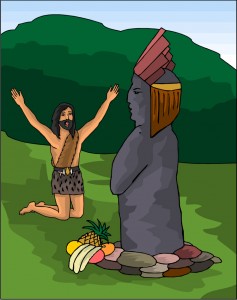
Ephesians 1
Ephesians 1:3, With every spiritual blessing. Our best and ultimate blessings are reserved for us in heaven time, and are not necessarily ours to experience on this earth at this time.
Ephesians 1:4, Without blame.The saint is without blame before YHVH, not without sin.
Ephesians 1:10, All things in the Messiah. Heaven and earth unit in the Messiah who died suspended between the two to reconcile both while using his life as a bridge between heaven and earth. He is the ladder that Jacob dreamed about—the stairway to heaven to which he referred in John 1:51 that all most climb to be reconciled to his Father in heaven.
Ephesians 1:11, An inheritance. Our inheritance is to be adopted as sons into the family of Elohim as Paul states in verse 5.
Ephesians 1:13–14, Sealed…guarantee. YHVH’s depositing his Spirit in the saints at the time of their conversion is his investment in his set-apart people. Whether such a person proves to be a good investment or not is up to that person based on their obedience and faithfulness to YHVH until the end of their life. If they victoriously overcome the world, the flesh and the devil, then YHVH will make a return on his investment and will have gained an immortal addition to his family.
Ephesians 1:15, Faith in…love for. This is a restatement of the shema, which involves loving Yeshua and the saints.
Ephesians 1:18, Inheritance. The saints’ inheritance is eternal life and membership in the family of Elohim for eternity. This is his return on his investment he made in the saint’s life when he gave them his Spirit.
Ephesians 1:19, Inheritance. Explore dunamis versus kratos power, since both words are used in this verse. The same power is at work in us that raised Yeshua from the dead and gave him heavenly dominion (see Eph 2:5). The same process that happened to him is occurring in our lives if we follow in his footsteps.
Ephesians 2
Ephesians 2:2, Sons of disobedience. In reality, sons of Torahlessness.
Ephesians 2:3, Lusts of our flesh. Anti-Torah inclinations.
Children of wrath. This refers to all unrepented and unforgiven sinners who will experience YHVH’s wrathful judgment at the end of days (see Rom 1:18, 32).
Ephesians 2:4–5, He love us…when we were dead. This is the unconditional love Elohim has for lost sinners. (See Rom 5:8).
Ephesians 2:7, Ages to come. Referring to Elohim granting eternal life to his saints at the resurrection and adoption into his spiritual family (Eph 1:11).
Continue reading


